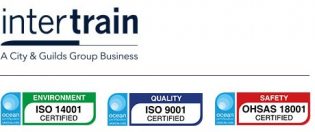Could you benefit from the support of a Finance Director?
As the end of the financial year approaches and a new one begins, it’s the perfect time to evaluate your company’s finances. If your business has grown large enough, it might be time to consider hiring a Finance Director (FD). Not only can a Finance Director manage your financials, but they can also provide critical strategic insight. But what exactly should you look for in a Chief Financial Officer (CFO)?
A sudden influx of capital or a significant business milestone can signal the need for a Finance Director. If you have been operating without one in your startup, there will likely come a point where their expertise becomes essential. For smaller businesses, a full-time FD might not be necessary. An accountant can oversee day-to-day financial tasks, while a part-time FD can offer strategic guidance when needed. However, if your company’s turnover exceeds £20 million, it’s time to seriously consider bringing in a full-time FD.
What makes a good Finance Director?
When drafting the job description, it’s crucial to clearly define the role. In smaller companies, a Finance Director might wear multiple hats, taking on responsibilities beyond finance, such as HR, secretarial duties, and insurance. Regardless of the additional roles, the strategic direction of the company—whether for the next six months, one year, or five years—must be clear. You should know exactly what strategic input you expect from this hire.
Accounting Expertise
A strong grasp of accounting principles, financial reporting, and regulatory compliance is fundamental for any FD. This includes proficiency in budgeting, forecasting, and managing cash flow. Financial Analysis is also a key skill – you need someone with the ability to analyse complex financial data, identify trends, and translate them into actionable insights for business growth and cost control.
Commercial Awareness
You need someone who can not only manage the numbers but also use them to drive decision-making aligned with your business goals. You want someone who can make proactive decisions based on the numbers and apply them, within the strategic plan, to the business. Commercial awareness—both qualitative and quantitative—is vital.
Experience
What’s most important is a proven record of success. To realise your company’s strategic vision, the FD must have demonstrable experience. The interview process should focus heavily on their competency and ability to adapt to your company’s unique needs. At a minimum, your Finance Director should hold an accountancy qualification. An MBA is a valuable addition, but not a necessity.
Communication and Negotiation
A Finance Director must be able to clearly communicate complex financial concepts to non-financial stakeholders, including the CEO, board members, and external partners. Negotiation is an additional fundamental skill. Whether negotiating with suppliers, banks, or investors, an FD should be skilled in securing favourable terms that benefit the company.
Leadership and Management
A Finance Director often manages a finance team, so strong leadership, mentorship, and people management skills are critical. Another key skill is cross-functional collaboration, as the FD will need to work effectively alongside other departments (like operations, marketing, or HR) to ensure financial strategies are integrated with broader business goals.
Ethics and Integrity
These are essential qualities as the FD will have the responsibility of complying with legal standards and regulations, as well as upholding the company’s reputation. A Finance Director oversees a company’s financial health, which requires trust from stakeholders, including the board, investors, employees, and clients. Ethical behaviour and integrity foster confidence that the financial reports and data presented are accurate, honest, and transparent.
Perspective
A Finance Director’s ability to innovate is essential for keeping a company financially competitive and agile in an evolving business landscape. While hiring from within your sector might seem like a safe bet, it’s not always the best option. An internal candidate may be inclined to maintain the status quo, missing out on opportunities for innovation or fresh perspectives.
Building a Strong Relationship
As a CEO, your relationship with your Finance Director is critical. Building trust is paramount, so transparency about the company’s financial health from the start is essential. You don’t want to invest time and money in hiring someone, only for them to leave after a few months due to misaligned expectations. Given their commercial savvy, a Finance Director will likely negotiate a strong compensation package, which could include not just salary but also benefits, growth opportunities, and possibly even equity.
Developing Assertive Leaders
As a manager or leader, there’s always something new to learn or a skill you can improve and develop. Organisations need to support managers and leaders in this development, but you also need to invest in yourself.
Getting formal leadership and management training will not only help you build your leadership skills, it will also help you grow in confidence, and increase your chances of career progression.
Alternative Partnership delivers ILM-accredited Leadership and Management training programmes to support you and your teams in gaining formal, nationally recognised qualifications.
Find out more about our current ILM courses here or get in touch to discuss how our services could benefit you.












